Resignation Letter Template for UK Employees
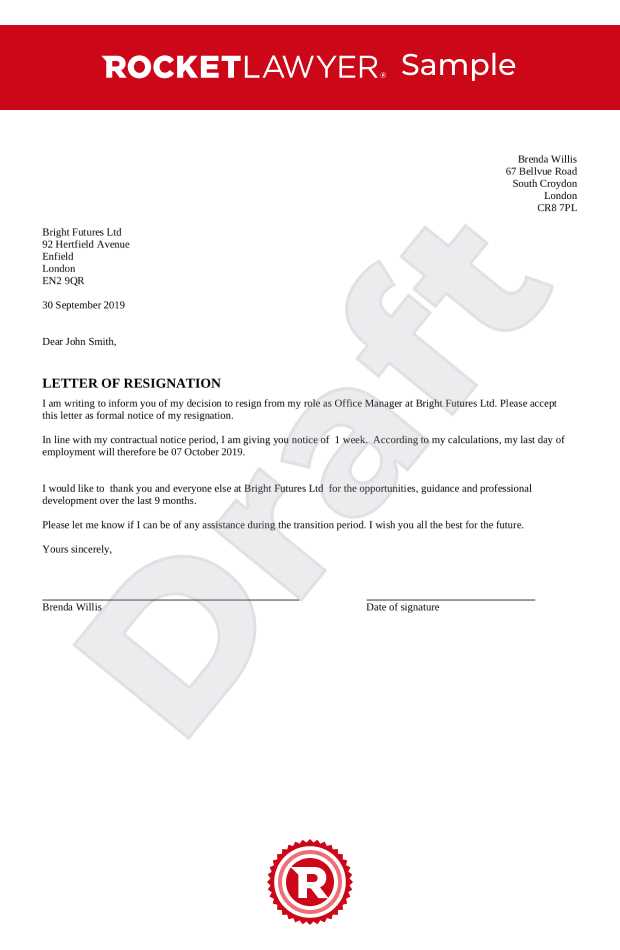
When it comes time to leave your current job, it is essential to notify your employer in a professional and respectful manner. Crafting a well-written document that communicates your decision clearly can help maintain positive relationships for future opportunities. This type of formal communication is a key part of the process and should be done thoughtfully to reflect your professionalism.
Knowing how to structure such a message is important for ensuring you leave on good terms. It should contain all necessary details, while remaining concise and polite. A clear outline of your intent, reason for departure (if applicable), and the final working day is crucial in such communication.
Throughout this guide, we will explore effective strategies for drafting this important notice in a way that is both respectful and appropriate for the UK workplace environment. By following some simple steps, you can ensure that you are leaving your role smoothly and maintaining a strong professional reputation.
Why You Need a Formal Notice
Understanding the Importance of Clarity
When the time comes to end your employment, it is crucial to communicate your decision in a clear and professional manner. The way you express this change can impact your future opportunities and relationships with your employer. A well-crafted formal communication ensures that both parties are on the same page, reducing misunderstandings and creating a smooth transition.
The Role of Clarity in Professional Communication
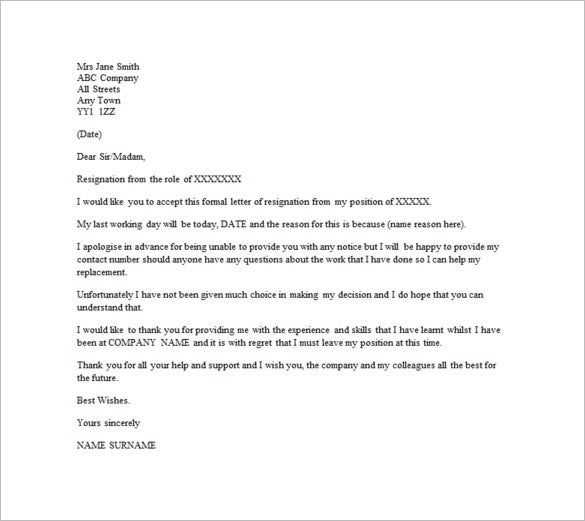
Clarity is essential in any formal communication. By outlining your departure in a straightforward way, you ensure that there is no ambiguity about your intentions. This not only helps maintain professionalism but also gives your employer enough time to prepare for your departure. Here are some key points to keep in mind:
- Final Working Day: Be specific about your last day to allow for proper planning.
- Reason for Departure: Although not mandatory, sharing a brief explanation helps provide context.
- Express Gratitude: Thank your employer for the opportunity, which helps maintain a positive relationship.
Benefits of Providing Clear Communication
Clear communication benefits both you and your employer. It creates a transparent process that allows for a professional exit, preventing any potential issues from arising. Some advantages include:
- Positive Reputation: Leaving in a professional manner reflects well on you.
- Respectful Interaction: By being clear, you show respect for the employer’s time and efforts.
- Smoother Transition: A clear message provides time to hand over responsibilities without complications.
Key Components of a Formal Departure Notice
What to Include in Your Message
When preparing to formally communicate your decision to leave a job, it’s important to include certain key details to ensure clarity and professionalism. This ensures your message is well-received and that the process goes smoothly for both you and your employer. Knowing what to include in such a notice is crucial to avoid misunderstandings and maintain a respectful tone.
Here are the essential elements that should be included in your written communication:
- Clear Statement of Intent: Begin by directly stating your decision to leave. Avoid any ambiguity to make your message straightforward.
- Effective Date: Indicate the specific date of your last working day. This is necessary for planning and transition purposes.
- Reason for Leaving (Optional): While not always required, a brief explanation of your departure can provide context. Keep it professional and concise.
- Appreciation: It’s important to thank your employer for the opportunity and the experiences gained during your time with the company.
- Offer to Assist in Transition: If appropriate, express your willingness to help during the transition period, such as training a replacement or finalizing projects.
Incorporating these key components will help ensure your message is comprehensive and professional. It shows respect for your employer’s time and prepares the groundwork for a smooth transition out of the organization.
Common Mistakes to Avoid in Resigning
Tips for Maintaining a Professional Tone
When communicating your decision to leave a role, it’s essential to do so in a thoughtful and respectful manner. Mistakes in this process can leave a lasting negative impression and potentially affect future opportunities. By understanding the common pitfalls and learning how to maintain a professional tone, you can ensure a smooth and positive transition.
Common Pitfalls to Watch Out For
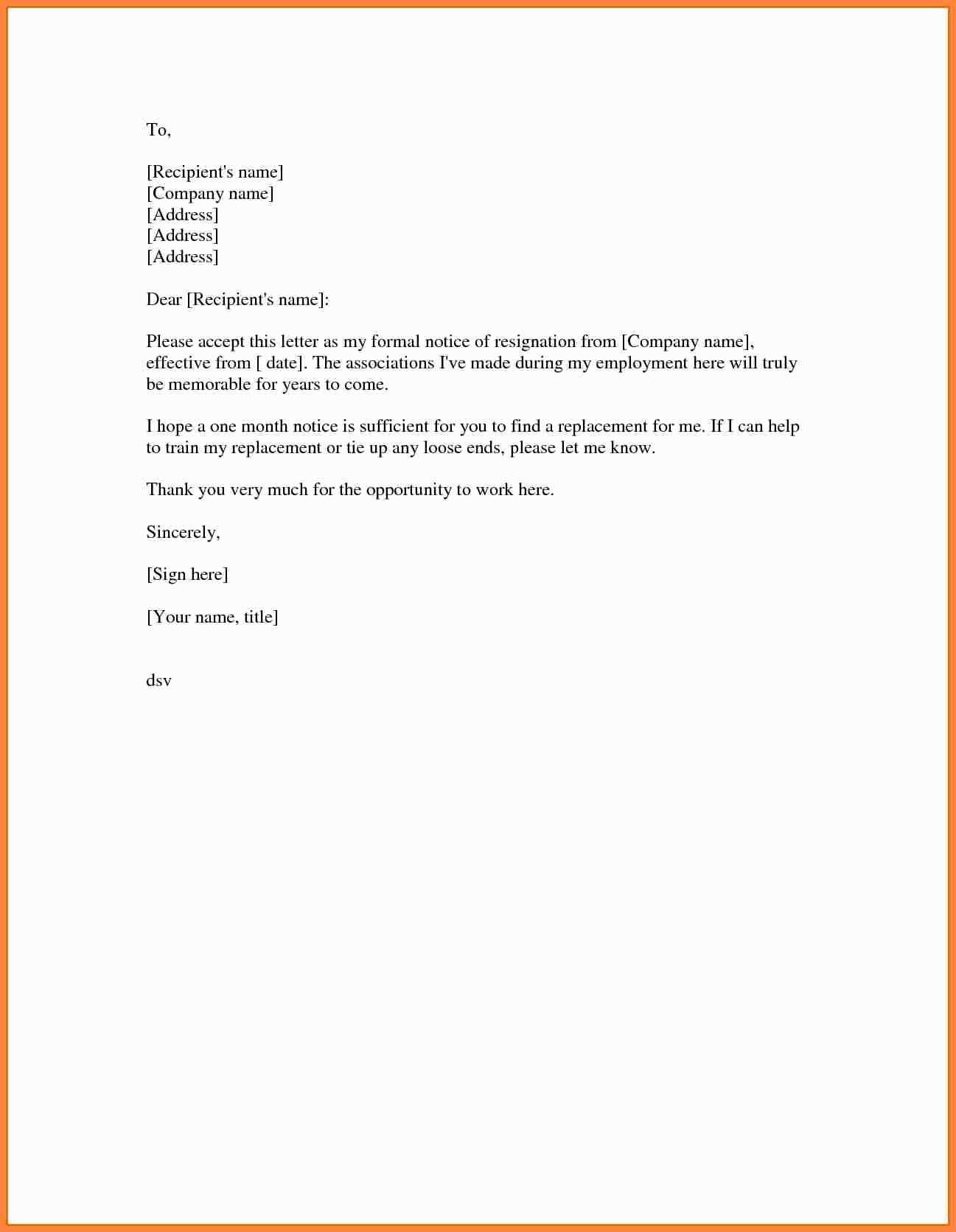
Avoiding certain missteps will help you keep your departure as professional as possible. Here are some key mistakes to steer clear of:
- Being Too Abrupt: Sudden departures without prior notice can disrupt your employer’s operations. Always provide adequate notice according to your contract.
- Negative Remarks: Speaking negatively about your job, colleagues, or company can harm your reputation. Keep the tone polite and neutral.
- Forgetting Key Details: Leaving out important information, such as your last working day, may cause confusion or delay the transition process.
- Overexplaining Personal Reasons: While it’s your choice to explain your reasons for leaving, excessive details can come across as unprofessional. Keep it brief and to the point.
How to Maintain a Professional Tone
To leave a job gracefully, always prioritize professionalism in your communication. Here are a few tips to ensure your tone remains respectful:
- Be Clear and Concise: Make sure your message is direct and free from unnecessary elaboration.
- Express Gratitude: Acknowledge the opportunities and experiences you’ve gained during your time with the company.
- Stay Positive: Even if your departure is due to negative circumstances, focus on the positive aspects of your experience.
- Offer Assistance: If feasible, offer your help in the transition process, such as training a successor or finalizing projects.
By avoiding these common mistakes and focusing on maintaining a respectful and professional tone, you can ensure a smooth departure that reflects well on you and preserves positive relationships with your employer and colleagues.
How to Tailor Your Departure Notice
Personalizing for Unique Circumstances
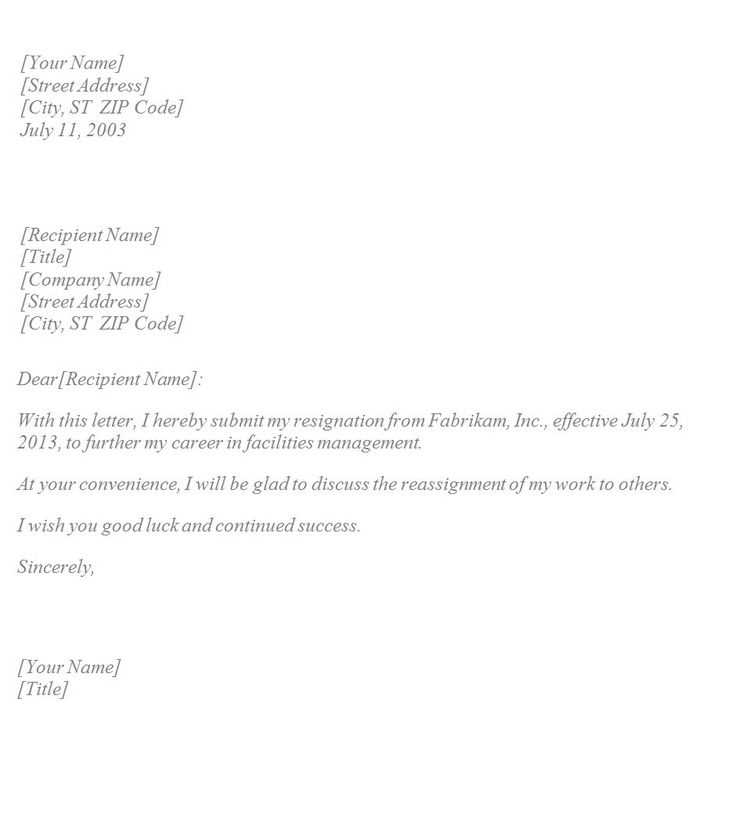
Every departure from a job is unique, and it’s important to tailor your communication accordingly. Depending on your relationship with your employer, the circumstances surrounding your decision, and the industry you work in, your message should reflect the specific nature of your departure. Personalizing your notice ensures it is appropriate, respectful, and clear for all parties involved.
Adapting Your Message to Different Scenarios
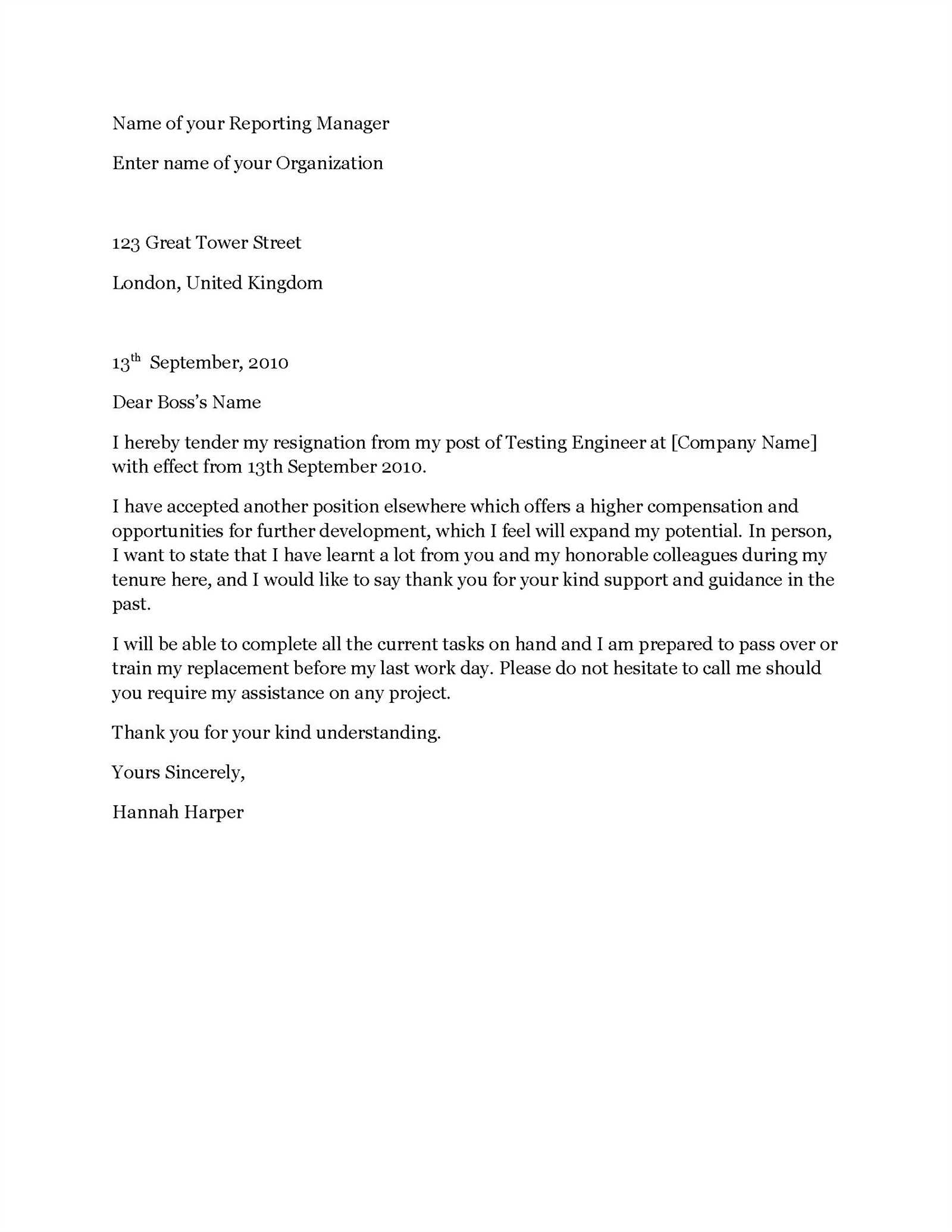
Whether you’re leaving due to personal reasons, a career change, or a relocation, the way you craft your message can influence how it is received. Here are some considerations for customizing your communication:
- Career Advancement: If you’re leaving for a better opportunity, you can express excitement about the future while maintaining gratitude for your current role.
- Personal Reasons: If personal issues are the reason for your departure, it’s perfectly fine to mention that without going into detail. Keep it brief and professional.
- Relocation: If moving to another location is the cause of your departure, mention this as a natural reason and offer assistance during the transition process.
- Retirement: When retiring, expressing your appreciation for the years spent with the company and highlighting memorable experiences can help ensure a positive tone.
Maintaining Professionalism Regardless of Circumstances
While personal circumstances may vary, maintaining a respectful and professional tone is always essential. Regardless of your reason for leaving, ensure your communication focuses on gratitude, cooperation, and your intention to leave on good terms. By tailoring your message thoughtfully, you can safeguard your professional reputation and maintain valuable connections in your industry.